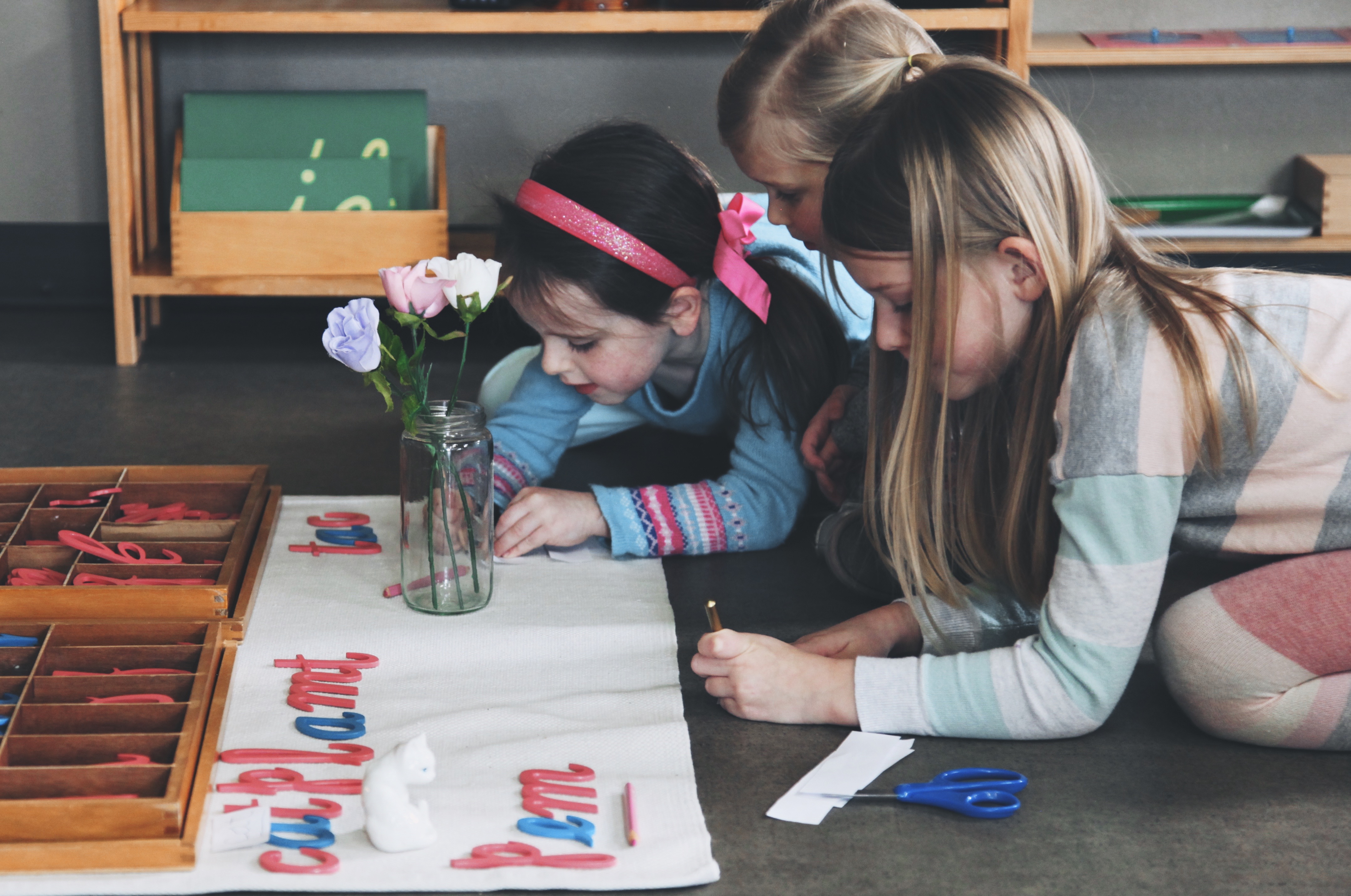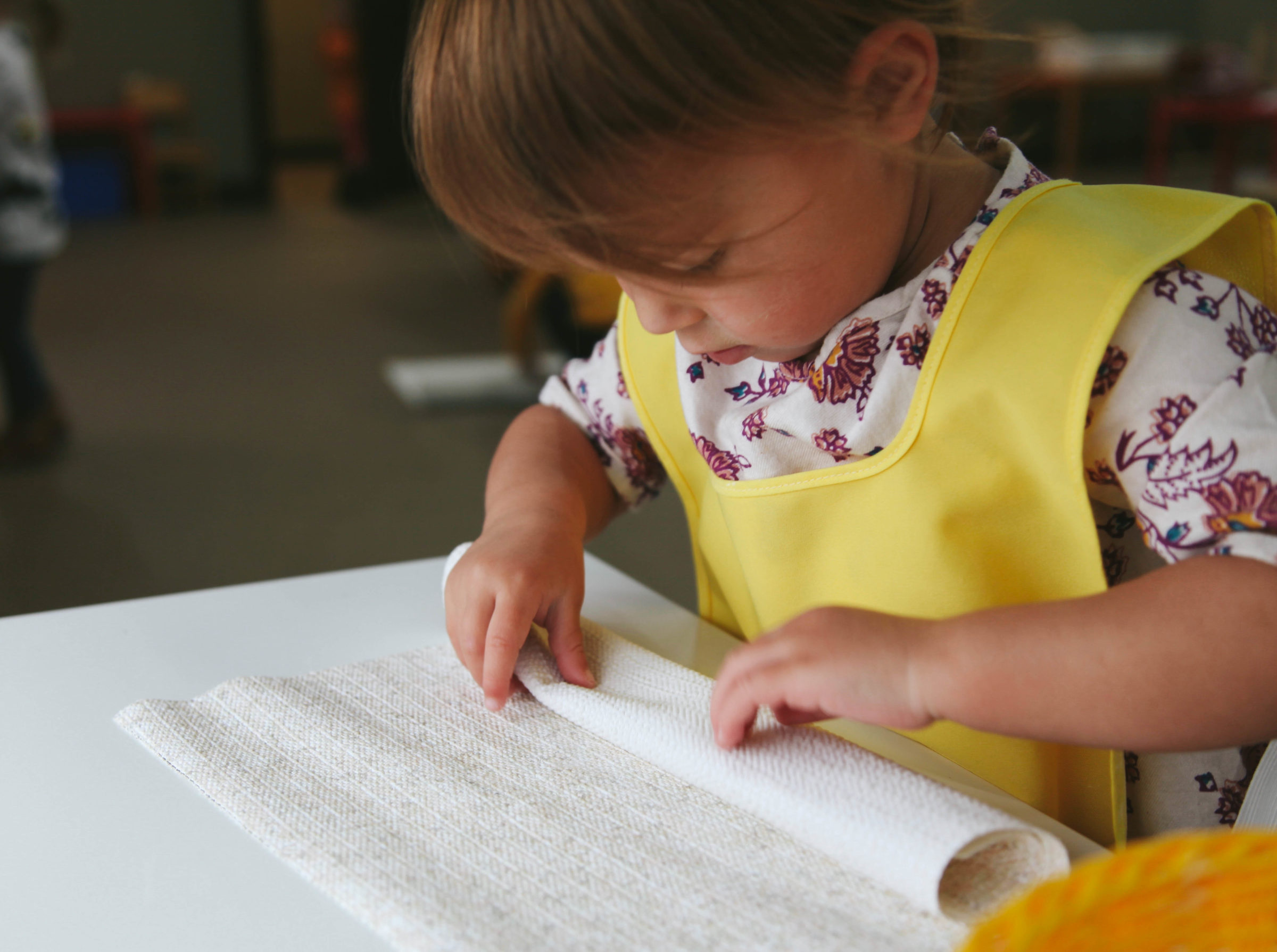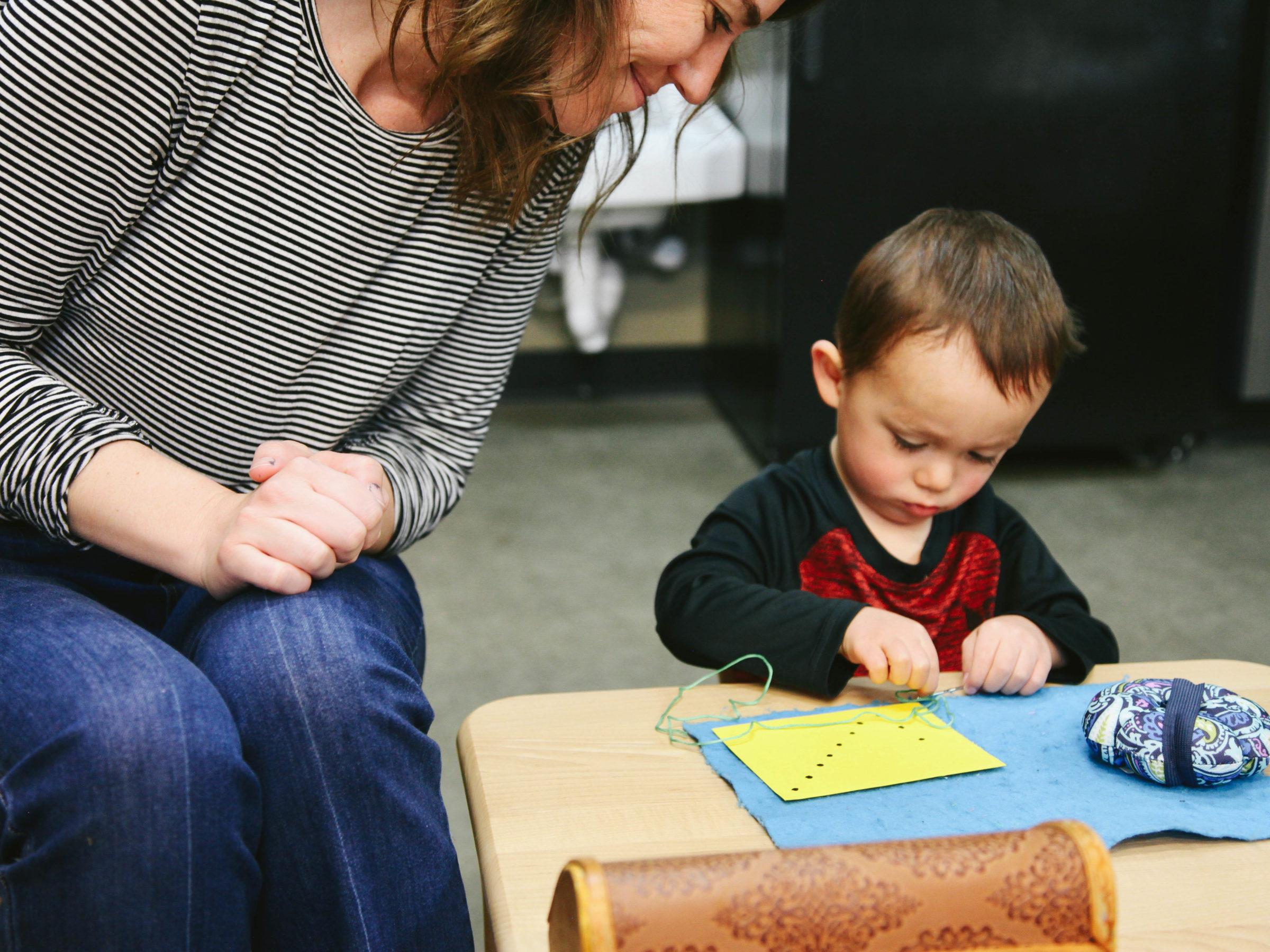What Happens in Montessori Kindergarten?
Thoughts & Reflections
There are a few aspects which are fundamental to Montessori education. One of these aspects is the Mixed-Age classrooms. Children begin in a Montessori Primary classroom typically between two-and-a-half and three-and-a-half, and remain in the same classroom for three or sometimes even four years, growing from the youngest to the oldest members of their classroom community.
There comes a point when each family begins considering, what comes next? Will our child complete Kindergarten in their Montessori classroom, or would this be a good time to move to the building where they’ll be through Elementary school?
So, what happens in Montessori Kindergarten?
There are many things to consider when deciding what to do for a child’s Kindergarten year, some many families ponder, others unique to a family’s situation. We can help provide some information about that final year in Montessori, which might answer some questions and provide data for decision-making.
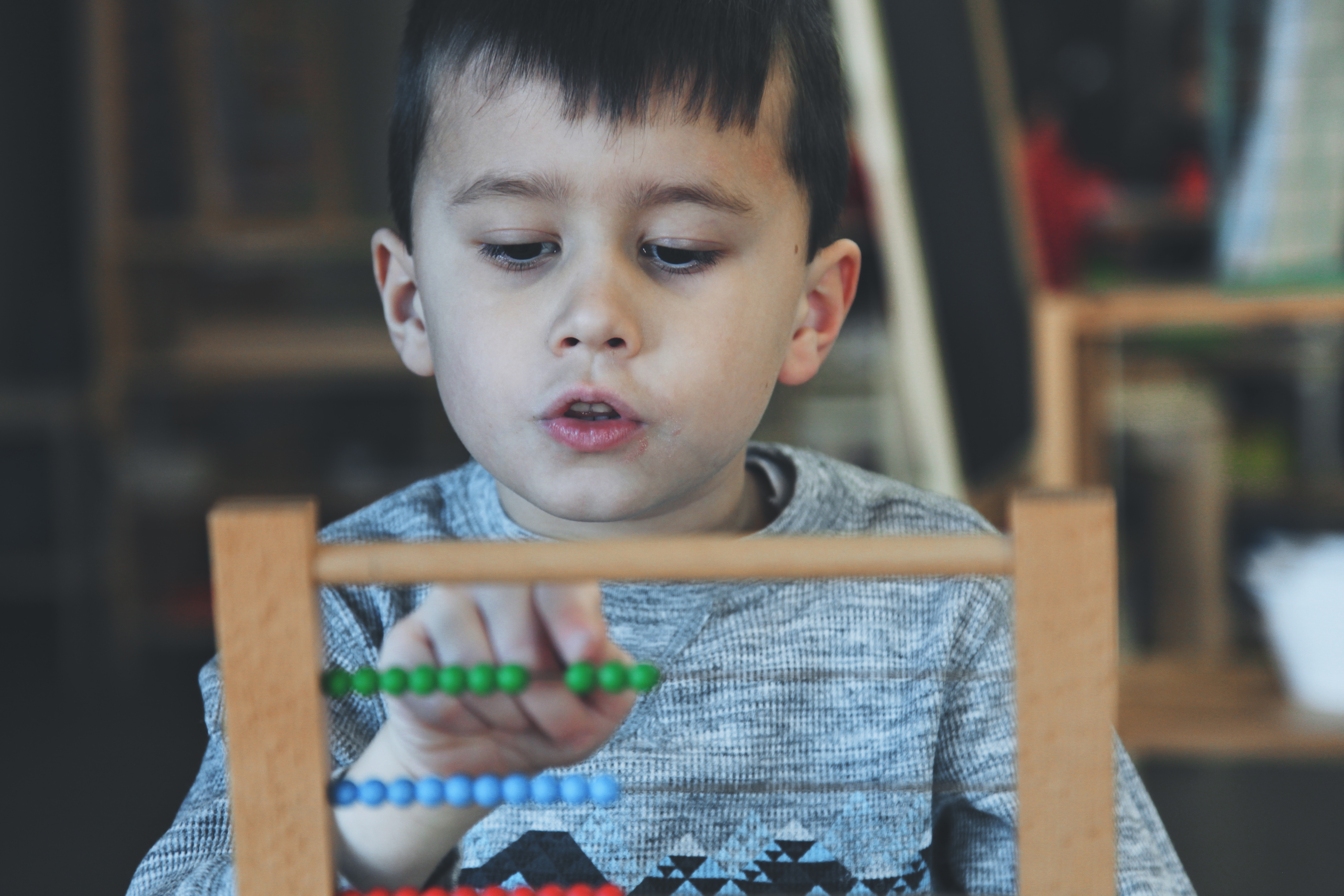
For some children, going off to Kindergarten might be the first academic and social experience, whereas children who have been in Montessori have been in a school setting for several years.
In Montessori, there isn’t a specific “Kindergarten” curriculum, there isn’t “Kindergarten time” and “Montessori time.” There aren’t materials which are magically available after paperwork is submitted to the state. Really, very little is different simply because the label “Kindergarten” is applied.
There are amazing things that happen, though.
We’ve always been focused on each individual child, providing the right material at the right time, the proper opportunity to practice and grow a skill you are demonstrating developmental readiness for. We’ll hold off or march ahead, at your pace, always moving forward from a place of mastery, so you understand everything you’ve learned, there’s nothing your “bad” at.
The final year in a Montessori classroom, which we’ll call the Kindergarten year, is the same, though what you’re ready for has grown.
“The only person a child admires as much as a parent, is an older child.”
There are some things that take time to develop. Some things cannot be rushed. Fine motor control takes time and practice. Careful handwriting, counting tiny beads, lengthy concentration required for completing large sequences of work. Integrating various areas of study, such as using the Geometry Cabinet to practice the Adjective, or reading about a subject you’re interested in, and writing a research paper on what you’ve read. The initiative of learning, having the skills to follow a pathway of self-education. All these take time to develop, physical characteristics, such as an increased cerebral cortex, or patient and coordinated fingers, the ability to sit for a length of time. We’ll engage in all these materials as soon as your ready, which often happens around that Kindergarten year.
The only person a child admires as much as a parent, is an older child.
They’ve been carefully watching this older child, tentatively asking for help from their personal heroes, idolizing these Big Kids, for several years, dreaming of the day when they, too, would be the Big Kid, the one asked to help a classmate, given big responsibilities such as helping with zippers and mittens before playtime, the expert on almost every material. Again, this happens if and when a child is ready, and we usually see that readiness, that grace and empathy, that self-control, that awareness of and care for others, that ability not only to know the right thing but to do the right thing, around the Kindergarten year.
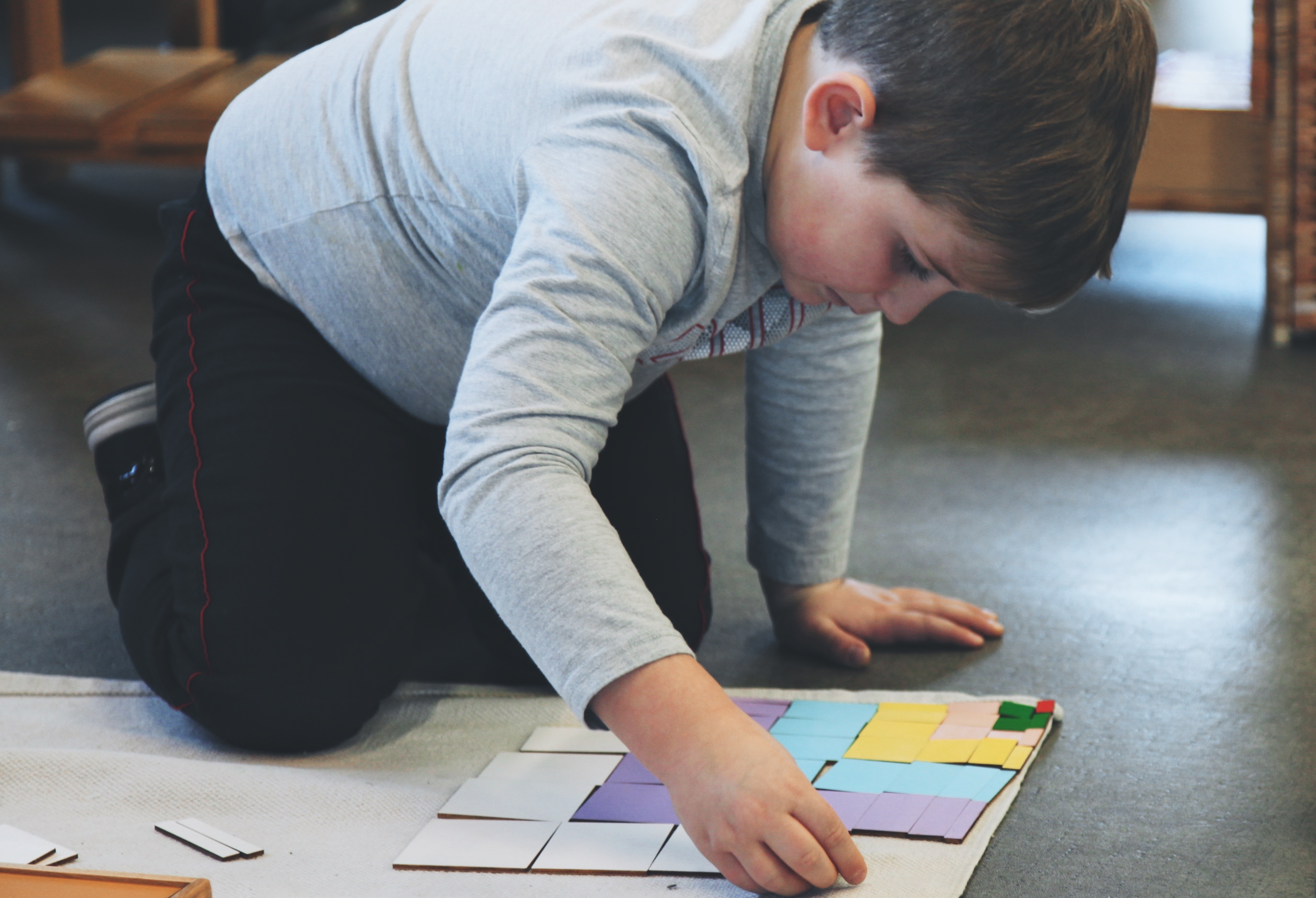
“But they have to move,” the question arises, “and isn’t this a good time? The Real World isn’t full of doing whatever you want, and isn’t this a good time to move to a Real Classroom, where everyone is learning to Sit Still and Be Quiet?”
I hear you, and that’s a valid concern. No parent wants their child to get in trouble for simply meeting their own needs, especially when that’s what the adults in their life have been shepherding them toward for the past several years.
That self-control, the rigorous attention to the needs of the Group, even above and beyond the needs of the Self, that’s what has been fostered since the earliest days.
Children do not walk in a Montessori classroom because someone told them to, or return a material to the place they found it so they don’t get yelled at, or only serve themselves one snack because someone will slap their hand away, it’s because, since they set foot in this room, they have been a full member of this Community, respected and loved, and the ownership is mutual. I would not disrespect others because I see myself in the Other, and I am no less nor more important than any other member of this Community.
The egalitarian nature of the Montessori classroom means that knowledge is to be shared, and when I know something, I can help you with this skill or concept, too, and thereby reinforce the knowledge.
This can be troublesome when a child leaves a Montessori community, and encounters a test for the first time. No, this is not an appropriate time to help others.
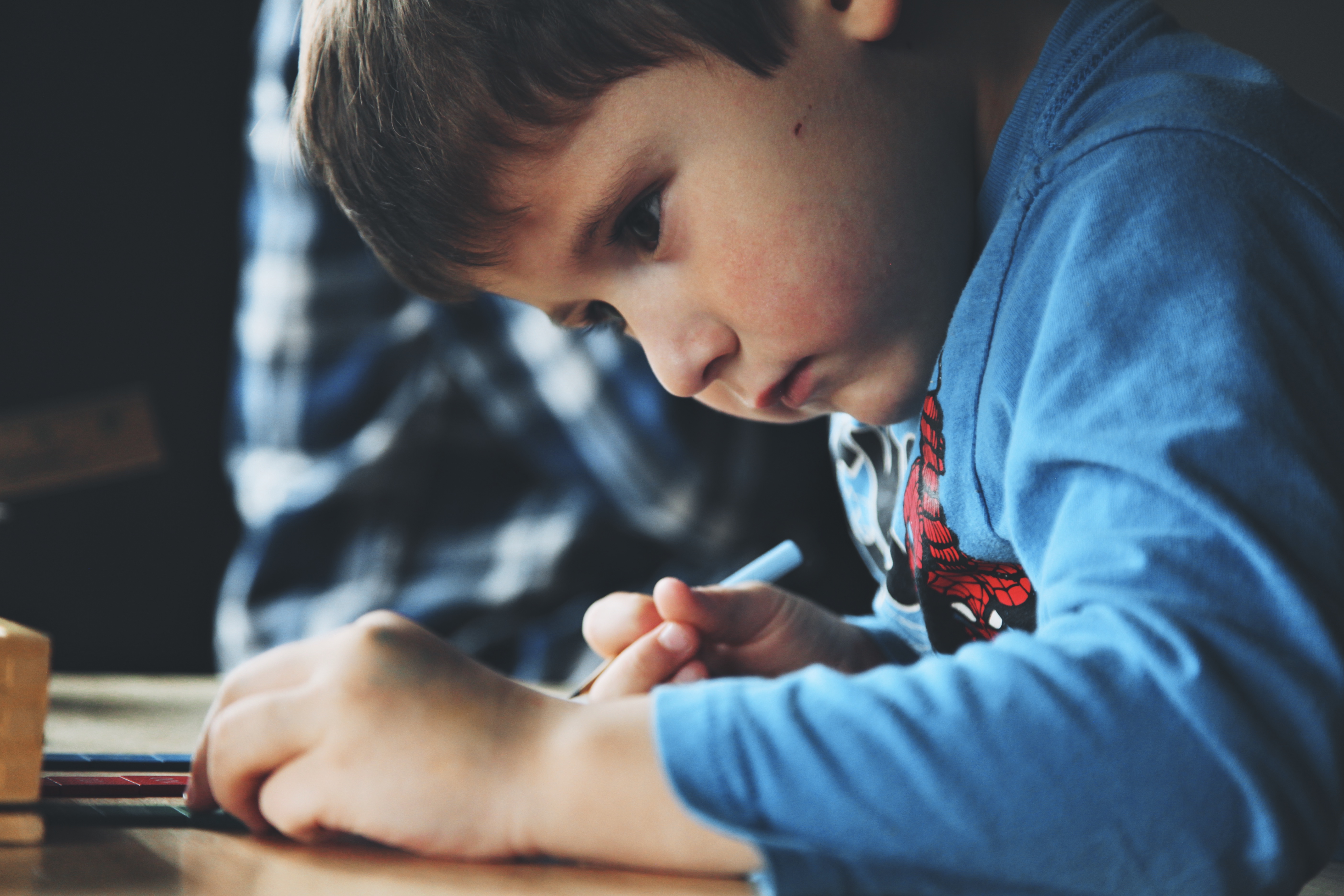
However, with an older child, who has had lots of experience with help, with a gentle reminder from an adult that sometimes help isn’t helpful, and the best way to help your friend is sometimes to leave her alone, to encourage and rejoice from afar, a simple note from a parent or teacher that, “This test is so the teacher knows who understands, and who still needs help, so it’s an important time to just do your own work.” is enough. There’s understanding and respect for other people’s learning, in their own time.
And, really, the Montessori classroom is a true preparation for real life. In so many ways, those years in school aren’t “Real World” experience. In our careers, we’re encouraged to learn both broadly and deeply, to understand how we fit into this company community, to support others, to help one another along and to learn from those who have been here longer. We must problem-solve and time-manage. We must return things to their proper place so that others can use them when they need, and respect the group dynamics, otherwise no one will want to play with or help us.
“…the Montessori classroom is a true preparation for real life.”
These skills, fostered throughout a child’s time in a Montessori classroom and refined and solidified that final Kindergarten year when their knowledge and skills coincide beautifully, do not hinder a child’s future success in school, but rather support their potential in, and after, school. This really is, as Maria Montessori writes in the Absorbent Mind, Education for Life.
Written by:
Charlotte Snyder
